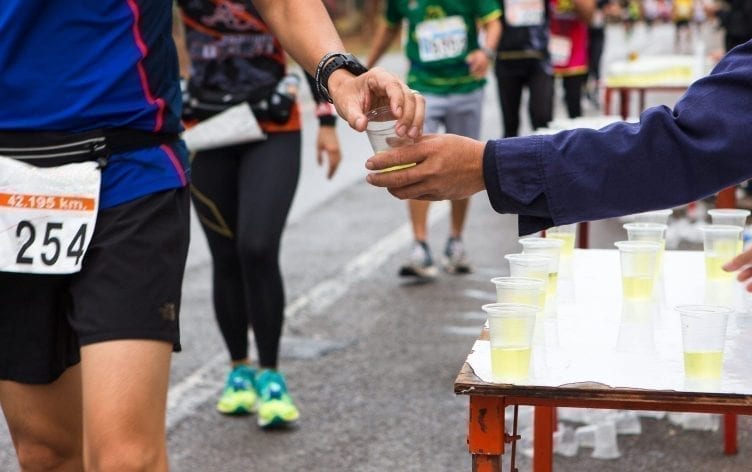
Most athletes have a basic grasp on what a good diet entails, but to fine-tune your intake for your best performance, it’s best to seek the advice of a board-certified specialist in sports dietetics. Sports dietitians assist athletes of all disciplines and levels of fitness, and they frequently go above and beyond those instructions to help athletes in unique situations.
Here are a couple of tricks sports dietitians employ that have helped athletes take their nutrition to the next level:
1
ALIGN NUTRITION AND TRAINING
Athletes looking to peak for certain goal events should try to mirror the intensity, volume and frequency of their nutrition to their workouts. Also known as “periodized nutrition,” this is a strategic method used by sports dietitians to help provide a competitive edge. When she develops periodized nutrition plans, Paula Mrowczynski-Hernandez, RD, a board-certified specialist in sports dietetics, includes various phases of training: low training, high training, race-day nutrition training, hydration training. She includes tips for using appropriate supplements to enhance adaptations and training abilities. “This nutrition approach can support the athletes in different stages of training and provide better recovery, exercise adaptations and exercise performance,” says Mrowczynski-Hernandez. These plans include time for the race-day taper.
2
PLAN TRAINING FUEL
Runner’s often avoid fueling their runs because of the difficulty involved in carrying fluids and fuel. Instead of struggling to carry something or suffering from going without, be like a bear and cache your fuel along the way. Maybe you have a friend who lives on your route and you can leave a bottle and gel in their mailbox or find a hidden spot along your trail to hide your goods. If you run an out-and-back you can start out with fuel and drop it for the return. Finally, it’s not unheard of to coordinate delivery along your route. This is a simple step that involves thinking and planning ahead, but goes a long way toward enhancing your running performance.
3
TRY SOBER LIVING
If you’re serious about using your nutrition to support training, Marisa Michael, RD, a board-certified specialist in sports dietetics, recommends skipping alcohol completely. The post-workout alcoholic beverage can be detrimental, particularly during peak training season. Marisa adds that “alcohol thwarts training by taking the place of a recovery meal, decreasing glycogen synthesis, impaired muscle repair and adaptation and interfering with recovery sleep.”
4
PRACTICE EATING ON THE GO
What to eat during racing or training is only valuable if you are able to consume it. Grabbing a gel from your cycling kit pocket during a group ride without crashing and drinking water from a paper cup while running at race pace without spilling or choking are not easy feats — but they get easier with practice. Go out for an easy solo spin and practice pulling food from your bike jersey along with grabbing your water bottle from its cage without looking down, over and over until you feel comfortable. To master drinking on the run, set up a small table with paper cups half-filled with water and grab one for a sip while running at a hard pace. Learning these skills allows you to fuel without worry.
5
HONOR THE RECOVERY WINDOW
Many athletes know they should take in recovery fuel after hard workouts, but neglect it due to time, convenience or to save calories. Susan Kitchen, RD, a board-certified specialist in sports dietetics, recommends prioritizing this ‘recovery window’ by taking in a protein source that includes branch chain amino acids (BCAA), especially leucine. The amino acids isoleucine, valine and leucine can be found in dairy, legumes, eggs, beef, yogurt, tofu and rice. She says “fueling within 30–45 min is critical for recovery, muscle protein synthesis (MPS), weight management, reduction in cortisol levels and to offset late-day cravings.” For fitter athletes and women, the optimal window actually is shorter and more important, she adds.
There is so much that goes into what it takes to eat like an athlete for optimal performance. These tips highlight the extra knowledge that board-certified sports dietitians bring to the athletes they work with. If you are looking to fuel your performance, know that there are tricks and tips to implement to get you reaching your goals.



